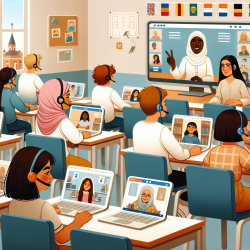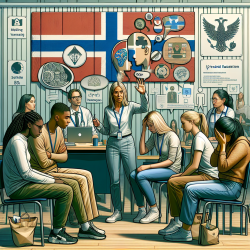The practice of Female Genital Cutting (FGC) is a deeply rooted cultural tradition that affects millions of women worldwide. For practitioners working with immigrant communities, understanding the shifting perceptions and practices of FGC due to migration is crucial. A recent study titled The effects of migration on the practice and perception Female Genital Cutting (FGC) among the Horn of Africa's immigrants in Melbourne Australia, provides valuable insights into how migration impacts these perceptions.
The Role of Gender and Immigration
The research conducted through interviews and focus groups with Horn of Africa immigrants in Melbourne reveals two main themes: gender-based experiences and immigration significantly influence perceptions of FGC. Women, in particular, perceive FGC as a harmful practice that needs to be eradicated. The study found that 23 out of 25 women interviewed strongly opposed FGC, citing legal protections and exposure to new ideas in Australia as pivotal factors in changing their views.
Conversely, many men viewed FGC as a cultural issue primarily managed by women. However, some men acknowledged the harmful effects of FGC and expressed a desire to see it eliminated. This gender-based divergence highlights the importance of including both men and women in discussions about FGC to foster comprehensive understanding and change.
Migration as a Catalyst for Change
The study underscores how migration serves as a catalyst for changing perceptions about FGC. Exposure to different cultural norms, legal frameworks, and access to information in Australia has provided immigrants with alternative perspectives on FGC. Many participants reported that they had not critically evaluated the practice until after migrating.
This shift is particularly significant among women who feel empowered to speak against FGC without fear of societal repercussions. The freedom to discuss these issues openly has allowed them to educate their peers and advocate for change within their communities.
Implications for Practitioners
For practitioners working with immigrant communities, these findings offer several actionable insights:
- Cultural Sensitivity: Understanding the cultural context and gender dynamics within immigrant communities is essential for effective engagement.
- Empowerment Programs: Implementing programs that empower women and provide education about the health implications of FGC can facilitate change.
- Inclusive Dialogue: Engaging both men and women in conversations about FGC can help shift perceptions and encourage collective action against the practice.
- Collaborative Efforts: Working with community leaders and leveraging local cultural knowledge can enhance intervention strategies.
Encouraging Further Research
The study highlights the need for ongoing research into the perceptions and practices surrounding FGC within immigrant communities. Practitioners are encouraged to contribute to this body of knowledge by conducting further studies that explore the impact of migration on cultural practices like FGC.
To read the original research paper, please follow this link: The effects of migration on the practice and perception Female Genital Cutting (FGC) among the Horn of Africa's immigrants in Melbourne Australia










